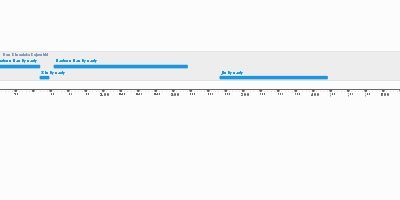Maoist China (1 nov 1949 anni – 9 sett 1976 anni)
Descrizione:
The time period in China from the founding of the People's Republic in 1949 until Mao's death in 1976 is commonly known as Maoist China and Red China. The history of the People's Republic of China is often divided distinctly by historians into the Mao era and the post-Mao era. The country's Mao era lasted from the founding of the People's republic on 1 October 1949 to Deng Xiaoping's consolidation of power and policy reversal at the Third Plenum of the 11th Party Congress on 22 December 1978. The Mao era focuses on Mao Zedong's social movements from the early 1950s on, including land reform, the Great Leap Forward and the Cultural Revolution. The Great Chinese Famine, one of the worst famines in human history, occurred during this era.China emerged victorious but war-ravaged and financially drained. The continued distrust between the Kuomintang and the Communists led to the resumption of civil war. Constitutional rule was established in 1947, but because of the ongoing unrest, many provisions of the ROC constitution were never implemented in mainland China.[101] Afterwards, the CCP took control of most of mainland China, and the ROC government retreated offshore to Taiwan.
On 1 October 1949, CCP Chairman Mao Zedong formally proclaimed the People's Republic of China in Tiananmen Square, Beijing. In 1950, the PRC captured Hainan from the ROC and annexed Tibet. However, remaining Kuomintang forces continued to wage an insurgency in western China throughout the 1950s. The CCP consolidated its popularity among the peasants through the Land Reform Movement, which included the state-tolerated executions of between 1 and 2 million landlords by peasants and former tenants. Though the PRC initially allied closely with the Soviet Union, the relations between the two communist nations gradually deteriorated, leading China to develop an independent industrial system and its own nuclear weapons.[108]
The Chinese population increased from 550 million in 1950 to 900 million in 1974.[109] However, the Great Leap Forward, an idealistic massive industrialization project, resulted in an estimated 15 to 55 million deaths between 1959 and 1961, mostly from starvation. In 1964, China's first atomic bomb exploded successfully. In 1966, Mao and his allies launched the Cultural Revolution, sparking a decade of political recrimination and social upheaval that lasted until Mao's death in 1976. In October 1971, the PRC replaced the ROC in the United Nations, and took its seat as a permanent member of the Security Council
Aggiunto al nastro di tempo:
Data:
1 nov 1949 anni
9 sett 1976 anni
~ 26 years
